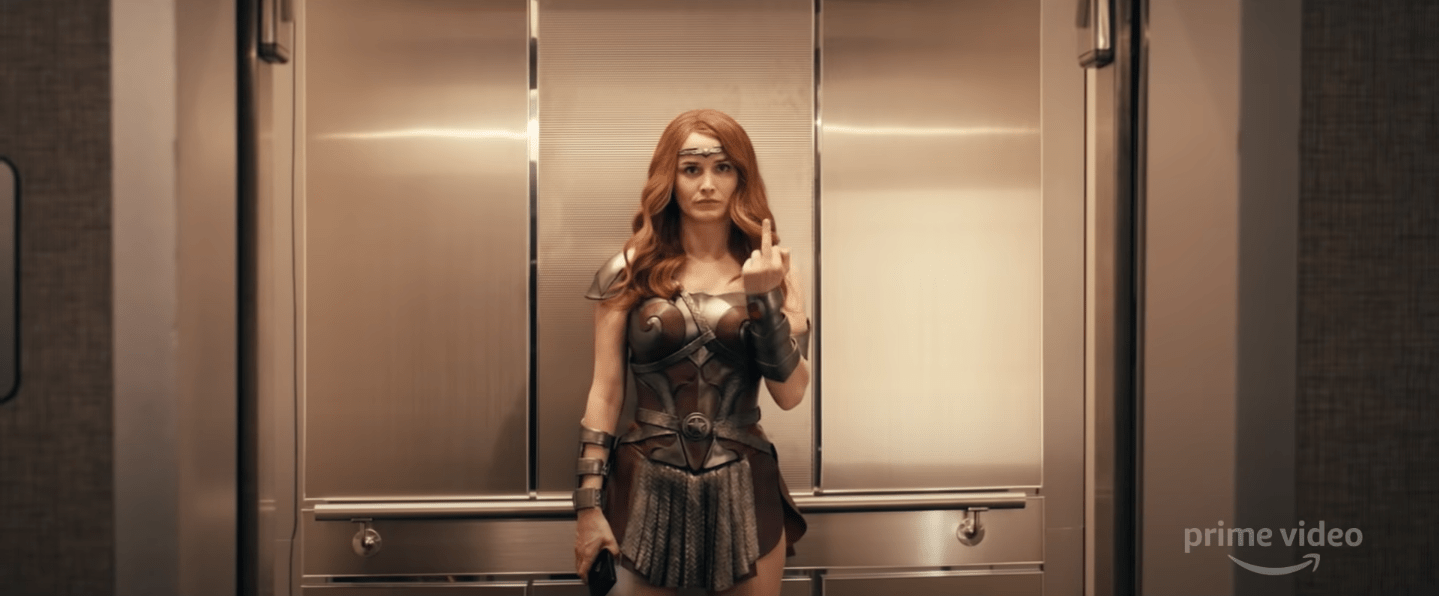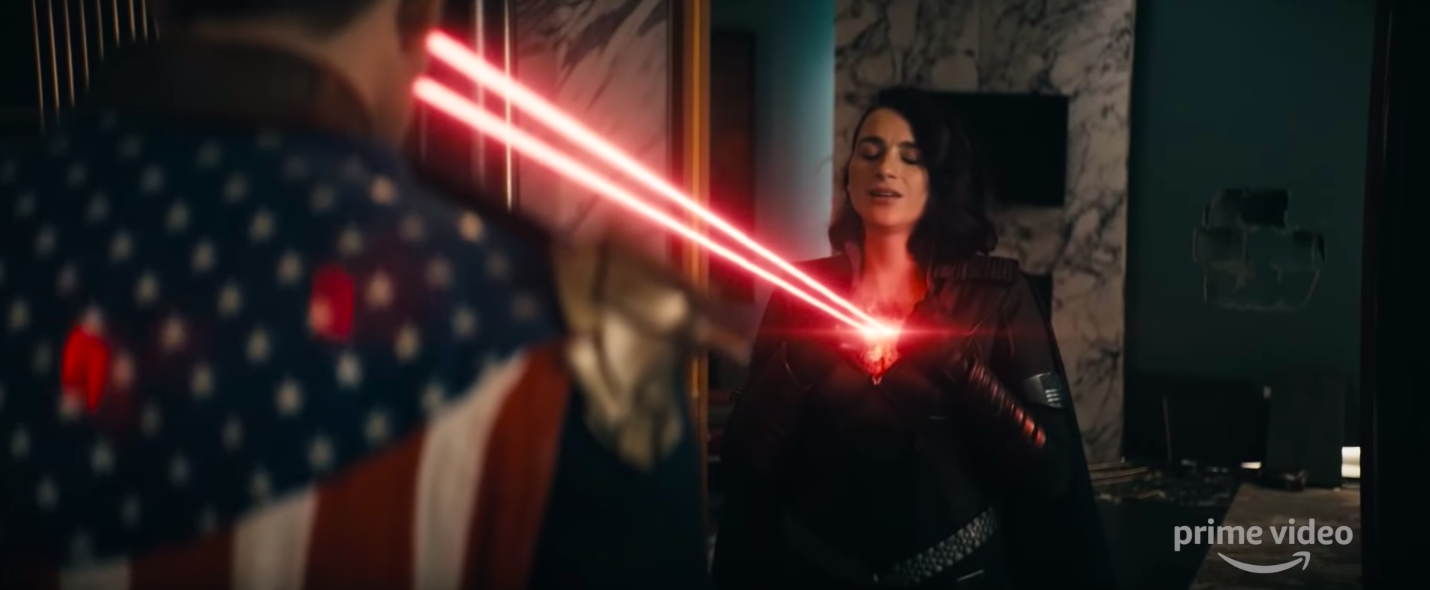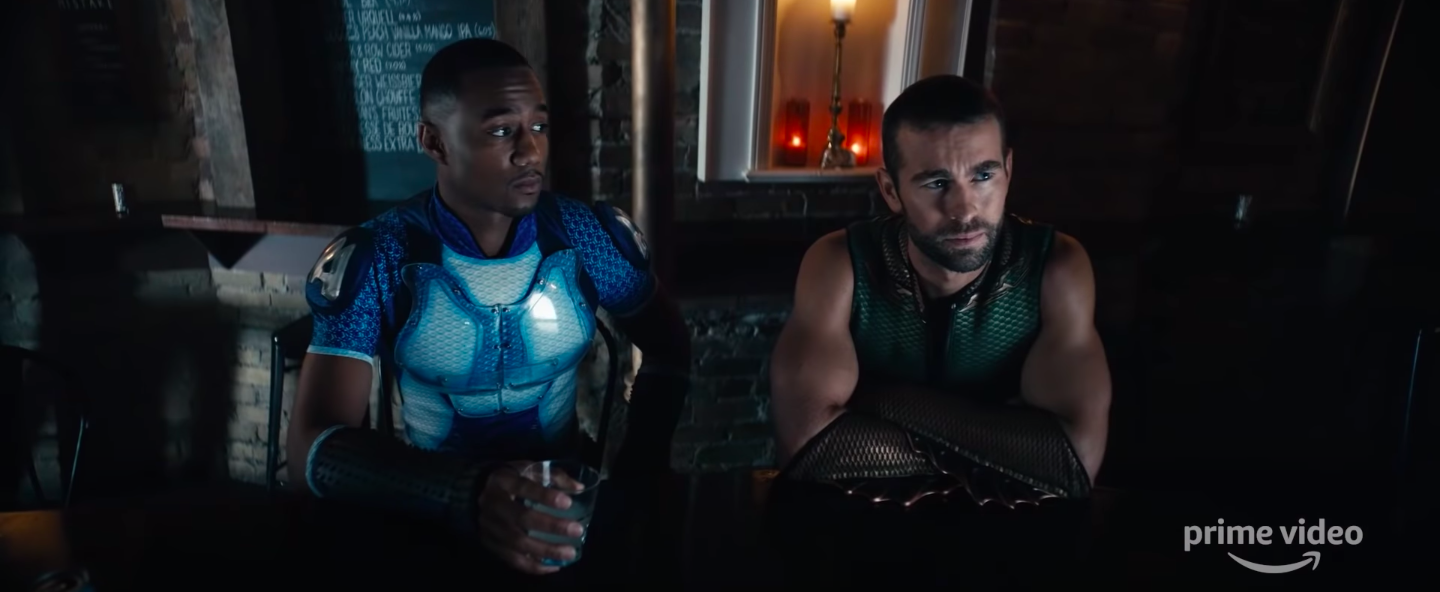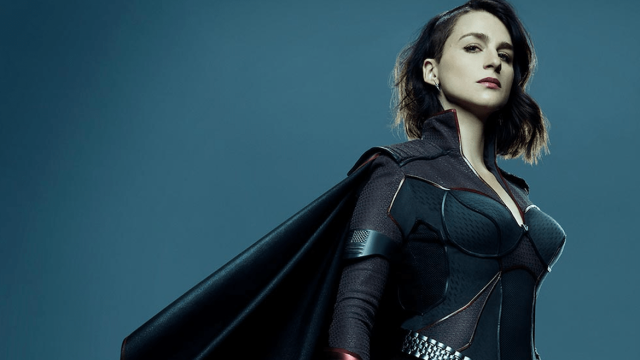The Boys’ abject disdain for traditional superheroes is palpable, which is one of the things that makes it so enjoyable to watch. One can’t help but realise that the creative minds behind Amazon’s adaptation of the comics really have a deep love for the genre they’re continuing to brutally lampoon in season two.
The Boys’ latest chapter pulls plots from a number of different points in the comics in order to tell a story that builds upon its already complex world, and takes more than a few well-placed punches at our superhero-obsessed reality. At a time when people are lamenting about the virtual lack of a blockbuster movie season, The Boys steps up to the plate and provides viewers with a sendup of the movies that would have come out this year were it not for the covid-19 pandemic.
Season two picks up not long after the events of the first season finale in which Homelander (Antony Starr) of the Seven murdered the vice president of Vought International after revealing to her he was responsible for the growing number of “super terrorists” popping up all over the globe. Dangerous as the world believes the Boys to be because of the media narrative about them being lethal killers, season two digs into just how significant a threat Homelander and the other twisted heroes pose to the public’s safety. Not only are Homelander and the other members of the Seven just physically powerful beings, they’re people that virtually everyone in the world worships with a rabid fanaticism that keeps them from seeing the Seven and Vought for what they truly are.

With Translucent dead, the Deep (Chace Crawford) ousted from the group because of his penchant for sexually harassing women, and A-Train (Jesse T. Usher) still recovering from a heart attack, Vought gets down to the dirty business of finding new supes to rounding out the Seven’s roster in order to maintain the illusion of normalcy. While the company is able to spin the need for new capes as a media spectacle that only intensifies the public’s love for them, behind the scenes, CEO Stan Edgar (Giancarlo Esposito) fights tooth and nail to hide the truth — not just about Homelander’s actions, but the fact that superpowered people aren’t born naturally, they’re created with the help of Compound-V (a drug that Vought produces).
The Seven’s power dynamics are disrupted in a big way by the arrival of newcomer Stormfront (Aya Cash), a formerly Portland-based electrokinetic who makes no effort to hide the fact that she’s every bit as powerful as Homelander and more than willing to assert herself as the team’s new heavyweight. Unlike her teammates, who all abide by Vought’s rules for the most part and live in abject fear of Homelander’s wrath, Starlight (Erin Moriarty) remains deeply suspicious of the corporate machine she’s become a highly visible part of, which is why she continues to support Hughie (Jack Quaid) and the rest of the Boys in their larger mission to expose the company.
As fugitives who’ve been framed for the murder of Vought’s former CEO, the Boys are forced into hiding and bide their time together. Of course, that quickly drives everyone stir crazy and pushes them into individual arcs that give the story the opportunity to flesh out the characters wonderfully. With Billy Butcher (Karl Urban) missing, the Boys are without a leader or real focus on anything but surviving from day-to-day and avoiding the Seven’s notice, which is part of what makes Hughie’s continued interactions with Starlight so risky. As Kimiko (Karen Fukuhara) settles into her new life with Frenchie (Tomer Kapon) and Mother’s Milk (Laz Alonso), they’re still constantly on alert as New York City and the rest of the country becomes increasingly concerned about the spike of crimes attributed to super terrorists.

In the super terrorist subplot, The Boys’ critique of the rise of an anti-immigrant sentiment in the United States is abundantly apparent. The show repeatedly draws attention to the fact that Vought purposefully uses racial animus to its advantage. Even when the camera is trained on someone’s head exploding — something that happens an alarming number of times this go around — the show is trying to make a number of valid points about the destructive influence megacorporations can have on society. That message is still rather rich coming from a show produced by Amazon Studios, but The Boys makes no pretense of trying to hide what it is. Almost every bit of hamfisted product placement is matched with a solid-arse joke about the corporatization of fandom or the way the media’s focus on superheroes can be ridiculously mind-numbing at times.
Base as the series’ humour often is, the running gag throughout the season — the production of a big-budget action movie about the Seven coming together to save the world — is brilliant and makes you appreciate how silly tentpole cape films tend to be when uncoupled from studio generated hype. What’s also impressive is that as compact as the eight-episode season is, it feels expansive and gives each member of its somewhat large cast plenty of room to flex. Both Fukukara and Cash deliver standout performances that give their respective characters the sort of nuance and depth that movies like Avengers: Endgame vaguely gestured towards without really going for it.

Between poking fun at Alexandria Ocasio-Cortez, sending the Deep into the bowels of a Scientology-like celebrity cult, and dragging people who won’t shut up about Hamilton, The Boys sophomore season doesn’t try to pull its punches and really ends up feeling like something special. The imagery is every bit as messed up gore-wise as its predecessor and if blood isn’t really your thing, it might be something to skip or watch with the remote at the ready. The Boys’ is still chuckle-worthy more often than not, and by the season’s end, it sets up a very interesting future for even more stories set in this awful, terrifying world.
All eight episodes of The Boys’ second season hit Amazon Prime on September 4. The series also stars Dominique McElligott and Nathan Mitchell.
